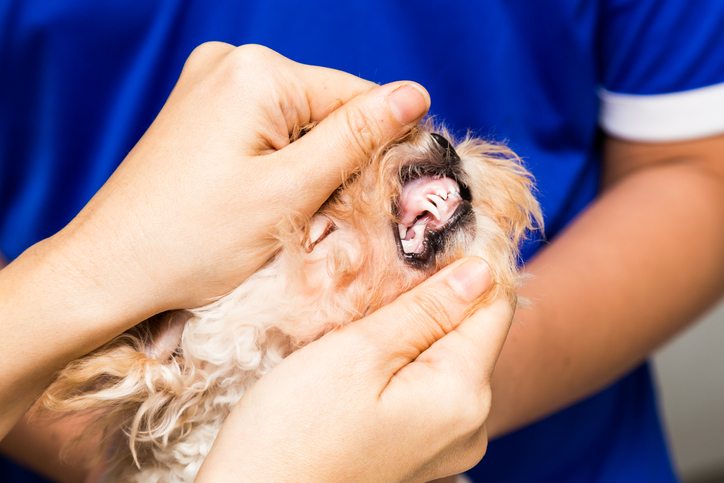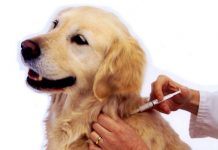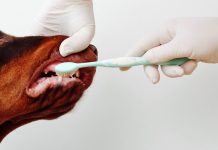
What are the health risks of Gastric Dilatation-Volvulus in dogs, commonly know as “Dog Bloat”or “Twisted Stomach”
Dog Bloat can be a life-threatening condition in dogs if not treated properly. The word “bloat” is used to describe the distended abdomen commonly seen in dogs with the condition. Dog Gastric dilatation-volvulus (GDV), sometimes referred to as
What Causes Dog Bloat?
What causes dog bloat and GDV is still a mystery, but experts have a few theories. Dogs who eat fast or eat one large meal each day might be at risk. Some say a dry food-only diet is to blame, while overeating, over drinking or strenuous exercise right after eating may lead to bloat. A fearful dog, or a dog that is stressed often may also be prone to dog bloat. Another theory is when a dog is eating from a raised or elevated dog bowl.
What Are The Symptoms of Dog Bloat
The most obvious sign that your dog may have bloat is a distended abdomen. Other symptoms of the condition include:
- Inability to belch or vomit
- Unsuccessful retching
- Weakness
- Increased salivation
- Difficulty breathing
- Pale gums
- Fast heartbeat
- Collapse

If you notice any of these symptoms, it’s important you get veterinary help immediately. As the condition worsens, the stomach continues to fill with gas and fluid, putting pressure on the surrounding organs. Oxygen supplies to these organs could potentially be decreased or cut off completely resulting in death.
Treatment for Dog Bloat
The first thing the vet will do is take an x-ray to ensure the stomach hasn’t twisted (GDV). The symptoms for both bloat and GDV are similar, but GDV must be treated immediately with emergency surgery. If it’s determined that your has bloat, the doctor may insert a tube down his esophagus to relieve the gas and fluid and decompress the stomach.
If it’s determined the dog has GDV, the veterinarian will perform surgery to return the stomach to its proper position. He may even permanently attach the stomach to the abdominal wall to prevent it from twisting again in the future. This surgery has many complications during and after, so constant monitoring is required if the animal is to survive.
Dogs Prone to Bloat and GDV
While any dog can get bloat caused by overeating, some dogs are more prone to GDV than others. Large, deep-chested breeds are most often afflicted with GDV: Saint Bernards, Irish Setters, Akitas, Basset Hounds, Boxers, Weimaraners, Great Danes and German Shepherds.
Preventing Bloat and GDV in Dogs
Here are a few things you can do to help prevent bloat and GDV in your dog.
- Avoid feeding your dog one large meal. Spread his feedings out over the course of the day with smaller portions to he is not eating too much too fast.
- If you feed your pet a diet of dry food only, consider incorporating some canned food into his diet.
- Maintain your dog’s correct weight.
- Place food and water dishes on the floor. Avoid raised dishes unless recommended by your vet.
- Make sure your dog is drinking plenty of water.
- Avoid strenuous exercise right before and right after eating.
- Ask your vet about prophylactic gastropexy surgery (to attach the stomach in place) if you have a dog in the high risk category.
Photo Credit: Thinkstock











